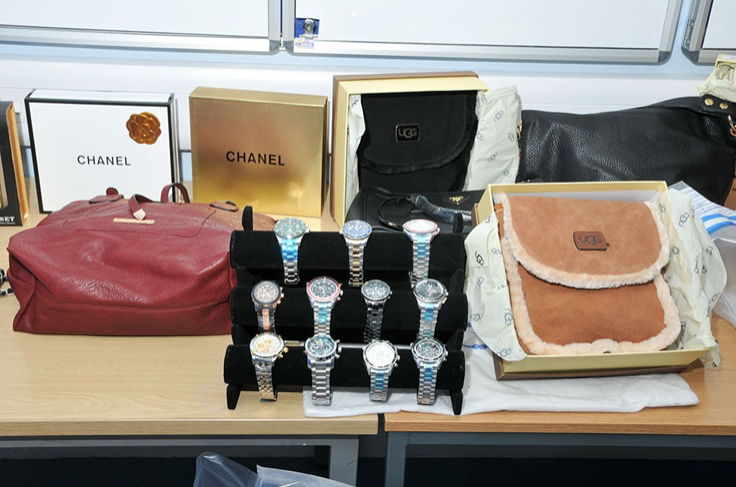Widespread sale of counterfeit goods thrives on social media and e-commerce platforms, study reveals
Corsearch's landmark whitepaper, 'Three Strike and Out', exposes the alarming prevalence of counterfeit products on social media and e-commerce platforms.

In a world where authenticity and trust are paramount, businesses need to be more careful and vigilant.
Corsearch, a brand protection technology provider, has recently published a groundbreaking whitepaper that sheds light on the rampant sale of fake products on social media sites and e-commerce marketplaces. This eye-opening research offers crucial insights into the magnitude of the problem and highlights the urgent need for stringent measures to protect consumers and brand integrity.
Titled 'Three Strike and Out', the updated study from Corsearch unveils a shocking truth: more than 2.8 million false listings for goods and services were eliminated by the company from social media and online marketplaces in 2022 alone. Delving deeper, the data reveals that a mere 4 per cent of sellers are responsible for the majority of these deceitful listings. This small group of repeat offenders accounts for a disproportionately high number of trademark infringements, perpetuating a cycle of fraudulent activity.
Remarkably, if e-commerce platforms were to enforce stringent standards that suspend vendors consistently offering fake products for sale online, as much as 23 per cent of fraudulent purchases could be prevented. By adopting a "three strikes and out" policy, suspending sellers who repeatedly engage in selling counterfeit goods, consumers would face fewer risks, and the staggering £260 billion annual losses caused by fake products could be curbed.
Corsearch's research builds upon their earlier findings from 2020, indicating that the issue of "repeat sellers" has worsened over the years. Some argue that recent European legislation. The Digital Services Act, which will gradually take effect in 2023, empowers social media and e-commerce platforms to remove repeat offenders after issuing warnings.
This regulation presents a unique opportunity for businesses, platforms like e-commerce and social media, and brands to collaborate, forging robust policies and procedures to combat trademark infringement and strike a balance between reputational and regulatory risks.
Simon Baggs, President of Brand and Content Protection at Corsearch, emphasises the potential impact of proactive measures, stating: "Huge steps could be taken to protect consumers and maintain trust in brands if those misusing e-commerce and social media platforms to repeatedly sell fake goods and services were blocked from using these platforms."
Baggs underscores Corsearch's commitment to partnering closely with e-commerce and social media platforms to devise effective strategies that benefit consumers, safeguard brand reputation, and ultimately benefit the platforms themselves.
Mike Sweeney, Director and Senior Legal Counsel at Corsearch highlights the transformative possibilities brought about by the Digital Services Act, asserting that meaningful change can be achieved through collaboration among e-commerce marketplaces, brands, and social media platforms. He emphasises the importance of attaining compliance in the coming months to ensure the effective implementation of these groundbreaking regulations.
The consequences of counterfeit goods extend far beyond financial losses. The Organisation for Economic Co-operation and Development (OECD) has shed light on the magnitude of the issue, stating that industries worldwide suffer significant financial setbacks due to counterfeiters.
In addition, the social implications of these losses are dire, affecting not only legitimate manufacturers but also the unsuspecting consumers who bear the brunt of unfair competition.
The OECD warns that consumers face health and safety risks when purchasing subpar products at inflated prices, while governments lose substantial revenue due to unpaid taxes. Furthermore, there is growing concern that counterfeiting is linked to other criminal activities such as drug trafficking, money laundering, and terrorism.
© Copyright IBTimes 2025. All rights reserved.






















